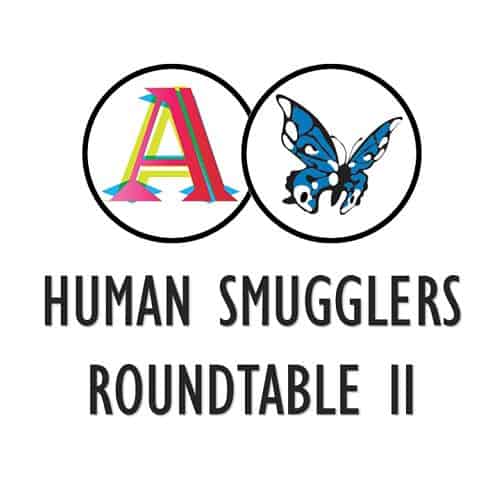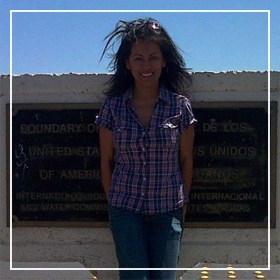While irregular migration is a global phenomenon, the mechanisms that allow for it to occur have received scant scholarly attention. Depictions of irregular migrants from war-torn and economically deprived regions ‘flooding’ refugee camps, riding atop of trains, and drowning in vast seas have effectively depicted contemporary migration flows as unprecedented, massive, and dangerous crises.
Portrayed as stretching thin the resources of nation-states and undermining their security, irregular migration has incited anti-immigrant sentiment, prompted voters to favour strict migration policies, and secured support for increasing border surveillance and controls. Within this context, irregular migration facilitated by human smuggling has consistently been depicted as a threat to global capitals worldwide.
Human smuggling has become almost part and parcel of the nation-state security framework.
Official narratives of smuggling argue that complex, transnational criminal networks are responsible for the precarious and risky journeys migrants and asylum seekers embark upon – and for their economic, sexual, emotional and physical suffering and exploitation.
Such concerns over transnational crime are then used to justify immigration enforcement actions in which counter-smuggling measures appear as the most important mechanism to stop or reduce the influx of irregular migrants. In February of 2016, for example, Europol launched the European Migrant Smuggling Centre to “proactively support EU Member States in dismantling criminal networks involved in organizing migrant smuggling”. Far from diminishing immigration flows, however, policy efforts have often resulted in an overabundance of short-sighted, piecemeal actions that have prioritised temporary solutions over the provision of sustainable and effective mechanisms of human protection and security.
Separating symptoms from causes
Human smugglers bear their share of responsibility for many of the tragedies we are currently witnessing in the Mediterranean Sea as well as elsewhere. However, our knowledge of irregular migration facilitation is often plagued with fragmented perspectives on the socio-cultural dynamics of the migratory journey, the facilitator-traveller relationship, and their community dimensions.
While it is true that research on irregular migration and its impacts is abundant, it suffers from a range of methodological and theoretical shortcomings concerning its facilitation.
First and foremost this research generally prioritises the perspectives of government or law enforcement entities eager to contain migratory flows. If often emphasises the most graphic and sensationalised incidents involving migrants, refugees and asylum seekers unfortunate enough to be the target of threats, scams or violence in the context of their clandestine journeys. It is dependent on the mobilisation of graphic, overly simplistic messages on migration that prevent a better understanding of the phenomenon and the motives leading to migrant journeys.
In an effort to re-energise and advance a rather limited field of study, in April of 2016 Luigi Achilli (European University Institute) and Gabriella Sanchez (University of Texas at El Paso) organised a workshop to explore the facilitation of irregular migration. Held at the European University Institute in Florence on 5-6 April 2016, this event constituted the first collective attempt to provide grounded and much needed critical notions in the area of human smuggling scholarship. We have just finished our second workshop, “Critical Approaches to Irregular Migration Facilitation: Grounding the Theory and Praxis of Human Smuggling”, which was held at the University of Texas in El Paso on 6-8 April 2017.
As we did in Florence, this event sought to foster the presentation and dissemination of empirically grounded smuggling research, a field often silenced by the onslaught of anecdotal evidence or technocratic-legalistic perspectives concerning the facilitation of irregular migration. Unlike the first workshop, which primarily challenged the state-dominated narratives of smuggling as forms of transnational organised crime, the 2017 workshop concentrated on the practices and empirics of human smuggling worldwide.
To bring this meeting to a wider audience Beyond Trafficking and Slavery and Allegra Lab have collaborated to produce a second online roundtable, which we are releasing today. Over the next few weeks these outlets will also publish a series of interviews conducted at the conference with its participants. We encourage you to take the time to the many individual responses of the roundtable using the graphic layout below, and to keep checking back in so as to not miss the interviews as they come out. We’ll also be advertising new content on Beyond Slavery’s Facebook and Twitter, so following those channels will also make it possible to keep up.
Both roundtable and interviews focus on the researchers’ primary data collected through direct engagement with migrants and smugglers, and taken together this series debunks many of the myths around human smuggling and border control.
The words and works of our contributors compel us to rethink and reframe the very concept of smuggling, its actors, and its implications amid contemporary global migration control regimes.
Explore each panelist’s answers or click on the question to see a consolidated selection. Items marked with an ![]() are hosted by our co-producer openDemocracy.
are hosted by our co-producer openDemocracy.







